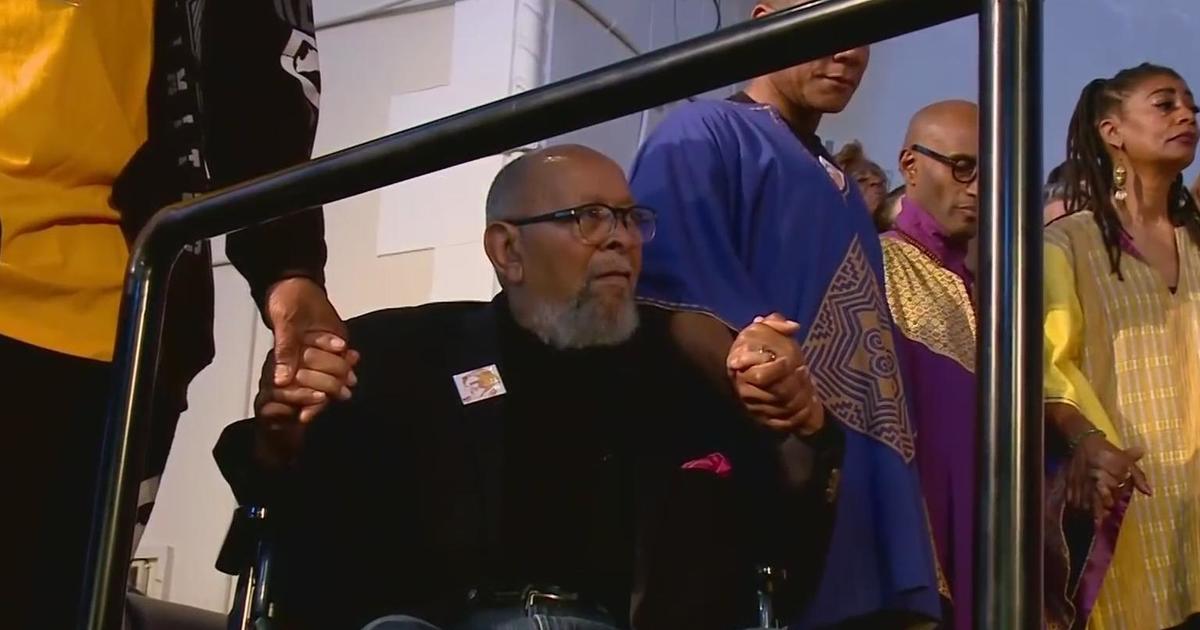Prop 8 Case Heads Back To San Francisco Federal Court
SAN FRANCISCO (CBS SF) -- Sponsors of Proposition 8 will be back in federal court in San Francisco Monday, asking a new trial judge to nullify a previous judge's decision to overturn California's ban on same-sex marriage.
The sponsors of the voter initiative claim the original judge, now-retired U.S. District Judge Vaughn Walker, had a conflict of interest because he has a long-term gay partner and might want to marry.
They are asking the new judge assigned to the case, Chief U.S. District Judge James Ware, to vacate, or nullify, a decision in which Walker ruled last year that Proposition 8 violated the U.S. Constitution.
KCBS' Matt Bigler Reports:
Ware took over the case after Walker retired in February.
The bid by the initiative sponsors and their committee, Protect Marriage, is separate from a slow-moving proceeding in which they are also seeking to appeal Walker's decision to a federal appeals court.
That appeal is now pending before the 9th U.S. Circuit Court of Appeals.
But that panel has sent the case on a detour to the California Supreme Court to decide whether the sponsors have the right to appeal in view of the fact that the official defendants—Gov. Jerry Brown and Attorney General Kamala Harris—have refused to do so.
The state high court is expected to hold a hearing on that issue in September and rule by the end of the year, after which the case will return to the 9th Circuit. The circuit court has stayed Walker's decision during the appeal, leaving Proposition 8 in effect for the time being.
Meanwhile, however, the Proposition 8 sponsors say the appeal might be unnecessary if the courts grant their bid to set aside Walker's decision.
"We deeply regret the necessity of this motion," the sponsors said in papers filed with Ware this spring.
But they said that if Walker ever wants to marry, he "would likely directly and substantially benefit from his own ruling" and thus "his impartiality could reasonably be questioned."
While presiding over the case, Walker did not publicly disclose he is gay but did not deny published reports.
Then, in a post-retirement meeting with a group of legal reporters in April, Walker said he had a 10-year relationship with a male doctor. He said he did not think his sexual orientation was relevant to his job as a judge and that he saw no need to disqualify himself from the case. He did not say whether he wanted to marry.
Lawyers for two same-sex couples who challenged Proposition 8 contend the motion is frivolous and at odds with a long line of federal court rulings saying that minority group members and women are not required to disqualify themselves from civil rights cases.
The motion is "an utterly baseless attack on the integrity of the judicial system," the attorneys wrote in a response filed last month.
"In fact, proponents' argument is nothing more than a thinly veiled attempt to disqualify a gay judge based on his sexual orientation," they wrote.
Theodore Olson, a former U.S. solicitor general who represents the two couples, said at a telephone press conference Friday that disqualifying Walker "would set a dangerous precedent."
"Every person alive has some background or experience that could conceivably arguably affect their attitude in a case," Olson said.
The plaintiffs' lawyers argue that under the Proposition 8 sponsors' reasoning, heterosexual judges should also not be allowed to rule on the case because one argument of the sponsors is that same-sex weddings would damage the institution of heterosexual marriage.
The Proposition 8 sponsors contend they are not seeking to disqualify Walker because he is gay, but only because his long-term relationship suggests he might have a "direct personal interest" in same-sex marriage.
Ware's ruling on the motion—which he could issue either from the bench on Monday or in a later written decision—could be appealed to the 9th Circuit and to the U.S. Supreme Court.
Proposition 8, enacted by California voters as a state constitutional amendment in November 2008, provides that "only marriage between a man and a woman is valid or recognized in California."
Walker ruled in August that the measure violated the federal constitutional guarantees of equal treatment and due process.



